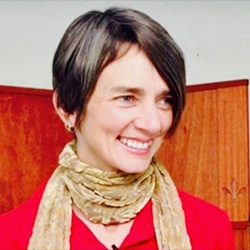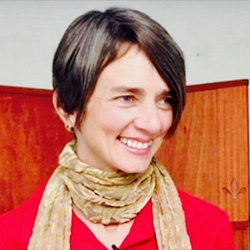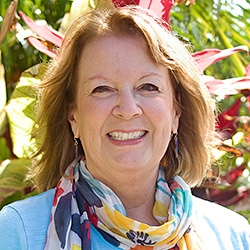
Search Results: impact
-
Giving feedback across a differences in culture, race, and power isn't something that we have to do -- but we can choose to do it for our own liberation, if we want. And if we choose that path, impact delivered well can invite caring for all needs and increase capacity to learn. This is the exacting, rigorous work of speaking about impact without attributing anything to the person whose actions resulted in the impact. Read on for part 1 of 2.
-
Children interpret and create meaning from everything they observe. They form a narrative about themselves and their place in the world. Roxy Manning shares how the stories of parents contribute to this narrative. Roxy shares a personal story where she, in an attempt to highlight her son's intellectual gifts, unintentionally influenced him to believe he couldn't do things on his own and wasn't smart. The impact of stories like this on a child's self-perception is long-lasting. Roxy urges us to consider the unintended messages that our words and actions may convey, as these narratives can be challenging to shift once established.
-
If we are to transform the existing social order, and shift to a mode of liberation for all, we'll need to look at our own participation in it. This includes how much we are able to focus on keeping our hearts open; speak to impact without attributing intention; and retain a humility that includes our systemic context. Read on for "how to" when we are in a position of less power.
-
Blame is a misguided habit that's used to avoid pain and suffering, offering only a momentary distraction and oversimplifies complex histories. It also disconnects us from choice and agency, blocks us from discovering more about ourselves and others, and can keep us from having compassionate, self responsible conversations. Instead, we can practice speaking in terms of impact and notice our experience without trying to escape it.
-
If you want a better connection it's crucial to be mindful about how your communication affects your partner. This means noticing and keeping eye contact, observing body language, and checking for their reactions. You can also share in small increments, check in before sharing vulnerable thoughts, and express what you notice. Give yourself empathy when you notice that you want to be right more than you’re wanting to be connected.
-
-
-
-
What would it be like if we raised children who already knew how to be inclusive, who already understood climate change, and who knew that they had a role in keeping our planet liveable? Roxy Manning believes that how we parent can support the next generation in showing up with an innate connection to Social Change.
-
Roxy Manning shares that facilitating equitable group dynamics involves tracking attention, needs, purpose alignment, resources, and impact. Identifying patterns in attention distribution, centered needs, and maintaining alignment with the purpose enhances inclusivity. Tracking internal and external resources, especially considering identity-related differences, prevents disparities. Recognizing who bears the impact, providing support, and addressing impactful issues contribute to fostering an equitable facilitation environment.
-
Roxy Manning suggests that in navigating a situation where accusations of racism and a white savior complex arise, the facilitator emphasizes the distinction between intention and impact. Acknowledging the pain of the aggrieved person, the facilitator clarifies that racism is about impact, not necessarily intention. Encouraging a focus on the impact first, the facilitator invites understanding of the internal and systemic levels of the experience. Despite the person's insistence on their intention, the facilitator remains firm in prioritizing the discussion of impact. The goal is to create a space for acknowledging and addressing the impact before delving into intentions.
-
Trainer Tip: Your every action has an effect on other people’s lives. The nature of the impact may not be obvious to us, but that doesn’t diminish its presence. The next time you are tempted to snap at someone or cut in front of another driver, consider whether you’d like to be their story that evening. Consider whether this is the kind of contribution you’d like to make to their life.
-
The existing unequal risks and impacts people of certain race, class and identities face in society is magnified in these strenuous times -- especially with things such as illness, financial well being, discrimination, attacks, and death. As responsive NVC practitioners we can stand in solidarity with those who are differentially impacted. Read on for this, and additional ways to spot common pitfalls of doing so.
-
Little negative impacts can become big when left unattended. Watch for things like using a sharp tone, choosing not to share something, going along with something when you don’t really want to, trying to convince your partner, impulsively turning away, shrinking, losing access to parts of yourself, hiding, daydreaming about a different life, and judgmental thoughts. Instead, shift the dynamic: take responsibility, provide empathy, and commit to change.
-
What we refer to as "selfishness" is action taken without concern for the impact or cost of that action. Self-responsibility, on the other hand, includes actively living from the truth of interdependence, care for your and others needs, thriving of all, and more. We can access clarity of self care when we have open flexibility, curiosity, and responsiveness. Read on for more on the indicators and attributes of each of these distinctions.
-
How can we respond when we’re horrified by what someone says? How can we deepen our connection to our humanness and authenticity when the impact is hurtful? Read on to see examples of the three steps of "calling out", "calling in", and "calling forth".
-
How do you carry on a conversation when someone’s comment has had an impact on you? And what happens when two intentions clash because of different perspectives? Here’s Roxy’s powerful, common sense approach.
-
In the "obnoxious stage" we care for our needs in a way that doesn't respect others' needs. In the "emotional liberation" stage we fully care for others' needs as much as our own—while being free of fear, guilt, shame, or obligation. Often NVC training teaches us how to achieve the latter stage without the former. For greater compassion we can be more rigorous in how we talk about “responsibility", impacts and interdependence.
-
Want to increase diversity, plus improve group dynamics and group functioning? There are things you can do to make NVC settings more welcoming to people of color. Learn more about how to use NVC; attend to impact; help the community understand and demonstrate more awareness; factor in historical context; engage; create a more inclusive climate; and more!
-
- Learn concrete tools for engaging with others as you embrace individual and collective liberation
- Find your own source of choice even in the face of challenges
- Release the constriction of scarcity
- Find an empowered option to respond to what is happening in our world
- Open the door to the possibility of thriving rather than merely surviving

















